Meet the people our schools depend on.
Our public schools sit at the heart of our communities.
They are forging the state’s future, educating tomorrow’s workforce and citizens. Over decades, our schools have adapted to different education theories and adjusted to the changing needs of a society that is continually evolving.
Our schools provide secure, permanent employment. In areas dependent on seasonal earnings, particularly those heavily dependent on agriculture and tourism, the economic benefits of regular wages on local economies are huge.
When PSA members go to work in NSW schools, they know their roles have ramifications far beyond the gate.
“Our members’ work affects not just children in schools, but in the wider community as well,” said Juliette Sizer, Chair of the PSA Schools Departmental Committee and Senior Vice-President of the PSA. “Regardless of whether it is in the outback or the inner city, a school is a vital part of its community.
Our members have a vital role before and after the school bell rings.”
PSA members keep NSW schools running. They are in classrooms, offices and school grounds, making schools more accessible, more efficient, safer and more aesthetic.
Sometimes PSA members are there to work with communities that have historically been marginalised from the education system.
Sean Bremer has been an Aboriginal Education Officer (AEO) for 18 years, working at a number of schools in the Riverina.
“Without AEOs, many Aboriginal children, their families and communities would miss out on having an Aboriginal person to connect them with the education system and better support them in schools,” he said.
“My role includes supporting the kids either in the classroom or on excursions. It is about being accepted by the Aboriginal community so that I can be the bridge between the school and the world outside.
“We go to meetings outside the school and liaise with other government agencies to best support our children.
“Not all Aboriginal parents are comfortable coming into the school, so they know I can be there for their children.
“We want kids to come to school, we want them to achieve to the best of their ability, and we want them to be happy and feel supported. And I am there for them.”
Ellen Payton is a School Learning and Support Officer at Claymore Public School, running mathematics and literacy programs for children, many of whom need assistance to keep up with other students.
She said working so close with the children gives her an insight into their lives outside school.
“I like the connections that I make with all our community and the staff,” she said. “You are challenged every day and every day is a different day.”
For Glenn Hall, a General Assistant at Thomas Acres Public School, his hands-on role attracted the attention of children feeling isolated from the school system.
“I worked with one girl who didn’t want to come to classes, so I got her to help me look after the school’s chickens,” he said. “Slowly, working with me, she came out of her shell and was more likely to attend classes.”
Mr Hall knows his school, in Sydney’s southwest, is part of the wider community. He has liaised with groups such as the Veterans Affairs Department to build remembrance gardens onsite. In a multicultural part of Sydney, he ensures all cultures are represented in the school’s artworks and landscaping.
PSA members are also looking at the wider world and gearing students for a changing employment market, particularly with the increased emphasis on science, technology, engineering and mathematics (STEM).

Helen Hill is a School Administration Officer (SAO) working in science. She has worked at Kadina High School for five years and worked in other science-related fields before then.
“My role is to provide support for the science teachers in delivering their lessons.”
Ms Hill said she is working with the PSA to get better recognition for these workers and their vital skills and expertise.
“I am part of the PSA’s SAO in Science Advisory Group,” she said. “We are looking for better training, an acknowledgment of our important role from a safety perspective and better pay. We would like the Department to acknowledge we have these important skills and can meet training requirements.”
Recognition of the vital role non-teaching staff play in our schools is an important focus for the PSA.
Carol Erskine has been a School Administration Manager (SAM) at Lennox Head Public School for 10 years, with experience at other schools in the region before then.
She said the role involves a dizzying variety of tasks, which is part of the job’s appeal.
“Walk in the door and there is always work waiting, whether it is a child, parent or casual showing up for the first time,” she said. “It’s full on until you walk out at the end of the day.
“I like the variety of tasks and I like the challenge of meeting deadlines. I have a routine, but you need to be prepared for that to go out the window if something pops up.”
Ms Eskine said the pay equity decision in 2019 and last year’s wave of permanent appointments have gone some way to “at last recognising that this can be a challenging job”.
However, she said there is no allowance for someone’s level of experience, and you can find someone with 10 years’ experience receiving the same pay as someone fresh in the role. Ms Erskine said the same applies to School Administration Officers (SAOs).
“We need better recognition for our skills and experience: our pay must reflect this,” she said. “This would give us a career path.”
Ms Sizer agrees, saying the increased professionalism shown by non-teaching staff in NSW schools needs to be recognised.
“Too many people see us as ‘mums helping out’, when in fact these are professional roles that our schools depend on,” she said. “We need career paths, training opportunities and pay scales that reflect our progression.
“It is all about respecting and recognising our important work.”






For some members, there is a realisation that not only do communities depend on schools, but school budgets and sizes depend on the size of the community around them.
“I am a School Admin Manager in Walbundrie, down near the Victorian border,” said PSA member Emma Pearce. “If it wasn’t for our school in Walbundrie, our community would collapse.
“A typical day is busy, because in a small school you have limited staff.”
If the population continues to decline, fewer students will mean less money to hire staff.
“It’s symbiotic,” she said. “We have to have our school and our school needs our community.”
PSA General Secretary Stewart Little said the union has had many wins for members in schools, particularly on pay equity, better pay for Psychologists, permanence, and getting a regular series of conferences for General Assistants.
“We are determined throughout all these wins, that the State Government recognises the extraordinary professionalism of our members in our schools and the wider communities that they serve.
“It is hard to think of a more important role of the state than educating our children. The PSA knows this and it fights hard to make sure the State Government, and the Federal Government handing out funding, know it, too.”





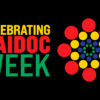

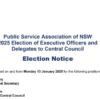

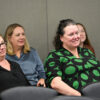


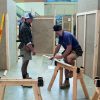
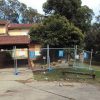
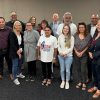
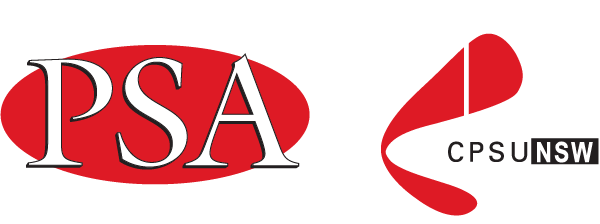
Leave a Comment
Your email address will not be published. Required fields are marked with *